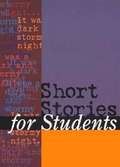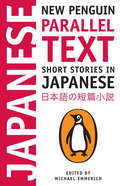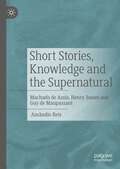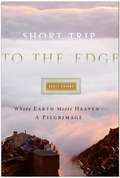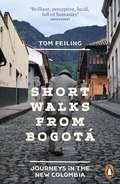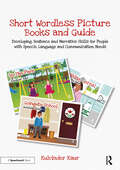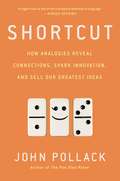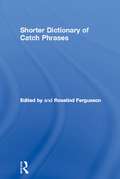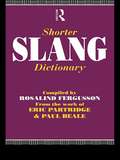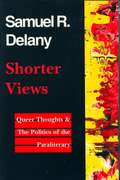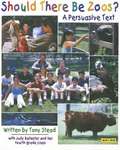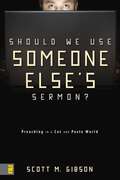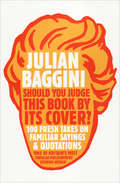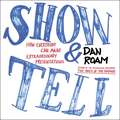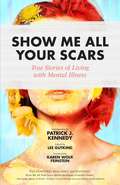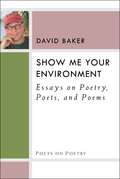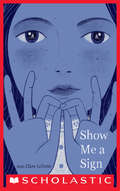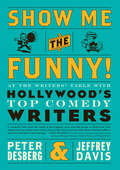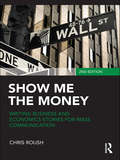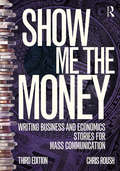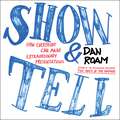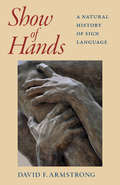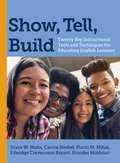- Table View
- List View
Short Stories for Students: Presenting Analysis, Context, and Criticism on Commonly Studied Short Stories, Volume 7
by Ira Mark MilneGive students the tools they need to make books and authors a meaningful part of their lives by introducing them to one of our "For Students" literary references. These resources are specially crafted to meet the curricular needs of high school and undergraduate college students and their teachers as well as the interests of general readers and researchers. Each title in the series provides understandable, comprehensive explanations of the most commonly studied poems, novels, dramas, epics and short stories as identified by an advisory board of teachers and librarians. No other literature references furnish such a high level of coverage -- all written in an unassuming tone that users will welcome. The references in the Gale Group's "For Students" series provide: -- Easy-to-read discussions of themes, plots and characters-- Easy-to-understand critical essays chosen specifically for students-- Analysis of each work's construction and historical context-- Photos, illustrations and other graphics-- And moreThe "For Students" series includes Poetry for Students, Novels for Students, Short Stories for Students, Drama for Students, Shakespeare for Students, Shakespeare's Characters for Students and Epics for Students. They're sure to be a welcome addition to your library. Each volume presents vital information on approximately 20 of the most-studied short stories at the high school and early- college levelsz Short Stories for Students contains concise synopses of the story's plot, characters and themes, along with a brief author biography, a discussion of the story's cultural and historical significance and excerpted criticism. Cumulative indexes enable students toaccess entries via author, title, nationality, and theme.
Short Stories in Japanese: New Penguin Parallel Text (Penguin Parallel Text)
by Edited by Michael EmmerichA dual-language edition of Japanese stories—many appearing in English for the first time This volume of eight short stories, with parallel translations, offers students at all levels the opportunity to enjoy a wide range of contemporary literature without having constantly to refer back to a dictionary. The stories—many of which appear here in English for the first time—are by well-known writers like Haruki Murakami and Banana Yoshimoto, as well as emerging voices like Abe Kazushige, Ishii Shinji, and Kawakami Hiromi. From the orthodox to the cutting-edge, they represent a range of styles and themes, showcasing the diversity of Japanese fiction over the past few decades in a collection that is equally rewarding for beginning, intermediate, and advanced students of English or Japanese. Complete with notes, the stories make excellent reading in either language.
Short Stories, Knowledge and the Supernatural: Machado de Assis, Henry James and Guy de Maupassant
by Amândio ReisThis book proposes a comparative approach to the supernatural short stories of Machado de Assis, Henry James and Guy de Maupassant. It offers an alternative to predominantly novel-centric and Anglo-centric perspectives on literary pre-modernism by investigating a transnational and multilingual connection between genre, theme and theory, i.e., between the modern short story, the supernatural and the problem of knowledge. Incorporating a close analysis of the literary texts into a discussion of their historical context, the book argues that Machado, James and Maupassant explore and reinvent the supernatural short story as a metafictional genre. This modernized and innovative form allows them to challenge the dichotomies and conventions of realist and supernatural fiction, inviting their past and present readers to question common assumptions on reality and literary representation.
Short Trip to the Edge
by Scott CairnsWhile walking on the beach with his Labrador, poet and literature professor Scott Cairns ran headlong into his midlife crisis. A fairly common experience among men nearing the age of fifty, midlife crises are usually manifested in the form of sports cars and younger women; not so for this Baptist turned Eastern Orthodox. Cairns had a realization that as the advancement of his spiritual life was moving at a snail's pace, time was running out, and his crisis emerged in the form of a desperate need to seek out prayer. Told with wit and exquisite prose, Slow Pilgrim is the story of Scott's spiritual journey to the mystical island of Mt. Athos. With twenty monasteries and thirteen sketes scattered across its sloping terrain, the Holy Mountain was the perfect place for Scott to seek out a prayer father and to discover the stillness of the true prayer life. His narrative takes the reader from a beach in Virginia to the most holy Orthodox monasteries in the world to a monastery in Arizona and back again as Scott struggles to find his prayer path. His story includes accounts of the relationships he forges with several different monks and priests along the way, as well as life-long friendships he makes with other pilgrims.
Short Walks from Bogotá: Journeys in the new Colombia
by Tom FeilingFor decades, Colombia was the 'narcostate'. Now travel to Colombia and South America is on the rise, and it's seen as one of the rising stars of the global economy. Where does the truth lie? Writer and journalist Tom Feiling, author of the acclaimed study of cocaine The Candy Machine, has journeyed throughout Colombia, down roads that were until recently too dangerous to travel, to paint a fresh picture of one of the world's most notorious and least-understood countries. He talks to former guerrilla fighters and their ex-captives; women whose sons were 'disappeared' by paramilitaries; the nomadic tribe who once thought they were the only people on earth and now charge $10 for a photo; the Japanese 'emerald cowboy' who made a fortune from mining; and revels in the stories that countless ordinary Colombians tell. How did a land likened to paradise by the first conquistadores become a byword for hell on earth? Why is one of the world's most unequal nations also one of its happiest? How is it rebuilding itself after decades of violence, and how successful has the process been so far? Vital, shocking, often funny and never simplistic, Short Walks from Bogota unpicks the tangled fabric of Colombia, to create a stunning work of reportage, history and travel writing.
Short Wordless Picture Books: Developing Sentence and Narrative Skills for People with Speech, Language and Communication Needs
by Kulvinder KaurThis collection of short wordless picture books helps to support children with speech, language and communication needs as they develop their expressive sentence and narrative skills through storytelling. Each book is comprised of six colourful images that follow a simple everyday routine such as ‘Brushing Teeth’, ‘Having a Haircut’ and ‘Walking the Dog’. Unlike traditional picture books, they follow a film scroll effect, showing the progression of time and allowing the child to follow the story to its resolution. Because of their simplicity, the books can support children as they move from simple to intermediate sentence levels, as well as encouraging them to consider additional elements of language such as cause and effect, sequencing and inference.This resource includes: Ten beautifully illustrated picture books, each following a simple pattern of routine, disruption and resolution An accompanying guidebook including story scripts, cue questions and prompts for using the resource to support additional skills Although developed specifically to help children with speech, language and communication needs, this set is suitable for any child who requires support and practice in developing their speech. It is an invaluable resource for speech and language therapists, teaching staff and caregivers.
Shortcut
by John PollackA presidential speechwriter for Bill Clinton explores the hidden power of analogy to fuel thought, connect ideas, spark innovation, and shape outcomes From the meatpacking plants that inspired Henry Ford's first moving assembly line to the "domino theory" that led America into Vietnam to the "bicycle for the mind" that Steve Jobs envisioned as the Macintosh computer, analogies have played a dynamic role in shaping the world around us--and still do today. Analogies are far more complex than their SAT stereotype and lie at the very core of human cognition and creativity. Once we become aware of this, we start seeing them everywhere--in ads, apps, political debates, legal arguments, logos, and euphemisms, to name just a few. At their very best, analogies inspire new ways of thinking, enable invention, and motivate people to action. Unfortunately, not every analogy that rings true is true. That's why, at their worst, analogies can deceive, manipulate, or mislead us into disaster. The challenge? Spotting the difference before it's too late. Rich with engaging stories, surprising examples, and a practical method to evaluate the truth or effectiveness of any analogy, Shortcut will improve critical thinking, enhance creativity, and offer readers a fresh approach to resolving some of today's most intractable challenges.
Shorter Dictionary of Catch Phrases: From The Work Of Eric Partridge And Paul Beale
by Rosalind FergussonThis collection will appeal to everyone who has ever wondered about the origin of phrases like "all part of life's rich pattern" and "long time no see". It covers a wide range of catch phrases in current use in all parts of the English-speaking world. Most entries are drawn from the second edition of Eric Partridge's Dictionary of Catch Phrases (second edition, edited by Paul Beale), but have been completely rewritten in the light of recent research, and there are many additions. Catch Phrases include: close your eyes and think of England! have I got news for you! ... refreshes the parts that other ... cannot reach some mothers do'ave'em! you are awful, but I like you.
Shorter Slang Dictionary
by Eric Partridge Paul BealeFrom abdabs to zit From pillock (14th century) to couch potato (20th century) From She'll be apples (Australia) to the pits (USA) This new collection brings together some 5,000 contemporary slang expressions originating in all parts of the English-speaking world. It gives clear and concise definitions of each word, supplemented by examples of their use and information about where and when they came into being. This entertaining reference work will be of use to students of English at all levels and a source of fascination to word-lovers throughout the world.
Shorter Views: Queer Thoughts & the Politics of the Paraliterary
by Samuel R. DelanyIn Shorter Views, Hugo and Nebula award-winning author Samuel R. Delany brings his remarkable intellectual powers to bear on a wide range of topics. Whether he is exploring the deeply felt issues of identity, race, and sexuality, untangling the intricacies of literary theory, or the writing process itself, Delany is one of the most lucid and insightful writers of our time. These essays cluster around topics related to queer theory on the one hand, and on the other, questions concerning the paraliterary genres: science fiction, pornography, comics, and more. Readers new to Delany's work will find this collection of shorter pieces an especially good introduction, while those already familiar with his writing will appreciate having these essays between two covers for the first time.
Should There Be Zoos?: A Persuasive Text
by Tony Stead Judy Ballester and her fourth-grade classNIMAC-sourced textbook
Should We Use Someone Else's Sermon?: Preaching in a Cut-and-Paste World
by Scott M. GibsonWith easy access to sermons on the Internet, plus pressure to deliver the next sermon with little time to prepare, no wonder some pastors have resorted to plagiarizing other people's sermons, passing them off as their own. This growing epidemic has received coverage in the Wall Street Journal, on National Public Radio, and elsewhere. Some pastors have been caught in the act and dismissed from their churches. Is this fair? Is this stealing? How can you recognize it? How can it be prevented? This book not only helps explain the problem, but it also explores the ethical implications and gives advice on how to avoid it or deal with it if the problem surfaces in your church. It includes study questions at the end of chapters and a concluding case study.
Should You Judge This Book By Its Cover?: 100 Fresh Takes On Familiar Sayings And Quotations
by Julian BagginiA philosopher takes a second look at sayings, proverbs, and bits of homespun wisdom: &“Every society needs its guardian of good sense: Baggini is ours.&” —The Financial Times These short, stimulating, and entertaining capsules of philosophy delve into the familiar words that live in our consciousness yet are rarely examined. Should you really do as the Romans do when in Rome and practice what you preach? Is the grass always in fact greener on the other side of the fence, and is there ever smoke without fire? Is beauty always in the eye of the beholder and is it actually better to be safe than sorry? From the popular author of The Pig That Wants to Be Eaten, cofounder of The Philosophers&’ Magazine, and academic director of the Royal Institute of Philosophy, this is a witty, deeply thought-provoking reminder that we should never stop asking questions.
Show And Tell: How Everybody Can Make Extraordinary Presentations
by Dan RoamEven if you're already a good speaker, you'll learn more about understanding your audience, organizing your content, building a clear story line, creating effective visuals, and channeling your fear into fun. And you'll master three fundamental rules: #1; When we tell the truth, we connect with our audience, we become passionate, and we find self-confidence. #2; When we tell a story, we make complex concepts clear, we make ideas unforgettable, and we include everyone. #3; When we use pictures, people see exactly what we mean, we captivate our audience's mind, and we banish boredom. From nailing the opening to leaving a lasting impression, you'll soon be able to give the performance of a lifetime--time after time.
Show Me All Your Scars: True Stories of Living with Mental Illness
by Lee Gutkind Patrick J. Kennedy Dr Karen Wolk FeinsteinEvery year, one in four American adults suffers from a diagnosable mental health disorder. In these true stories, writers and their loved ones struggle as their worlds are upended. What do you do when your father kills himself, or your mother is committed to a psych ward, or your daughter starts hearing voices telling her to harm herself-or when you yourself hear such voices? Addressing bipolar disorder, OCD, trichillomania, self-harm, PTSD, and other diagnoses, these stories vividly depict the difficulties and sorrows-and sometimes, too, the unexpected and surprising rewards-of living with mental illness.
Show Me Your Environment: Essays On Poetry, Poets, And Poems
by David BakerShow Me Your Environment, a penetrating yet personable collection of critical essays, David Baker explores how a poem works, how a poet thinks, and how the art of poetry has evolved—and is still evolving as a highly diverse, spacious, and inclusive art form. The opening essays offer contemplations on the “environment of poetry from thoughts on physical places and regions as well as the inner aesthetic environment. Next, he looks at the highly distinctive achievements and styles of poets ranging from George Herbert and Emily Dickinson through poets writing today. Finally, Baker takes joy in reading individual poems—from the canonical to the contemporary; simply and closely.
Show Me a Sign
by Ann Clare LeZotteMary Lambert has always felt safe and protected on her beloved island of Martha's Vineyard. Her great-great-grandfather was an early English settler and the first deaf islander. Now, over a hundred years later, many people there -- including Mary -- are deaf, and nearly everyone can communicate in sign language. Mary has never felt isolated. She is proud of her lineage. <P><P>But recent events have delivered winds of change. Mary's brother died, leaving her family shattered. Tensions over land disputes are mounting between English settlers and the Wampanoag people. And a cunning young scientist has arrived, hoping to discover the origin of the island's prevalent deafness. His maniacal drive to find answers soon renders Mary a "live specimen" in a cruel experiment. Her struggle to save herself is at the core of this penetrating and poignant novel that probes our perceptions of ability and disability. It will make you forever question your own ideas about what is normal.
Show Me the Funny!: At the Writers' Table with Hollywoods Top Comedy Writers
by Jeffrey Davis Peter DesbergEnjoy a unique glimpse into the intelligent and quirky inner workings of the comedic mind! This special e-version of Show Me the Funny! presents 28 top comedy screenwriters--including three bonus interviews not in the original print book--from the revered figures of televisions “Golden Age” to todays favorite movie jokesters. Authors Desberg and Davis put an innovative spin on the traditional interview: each writer was given the same loosely structured comedic premise and asked to develop it in any way he or she wanted-no rules, no boundaries, no limits! The result is a hilarious and illuminating look at the comic process. INCLUDES:o Leonard Stern (co-creator of Get Smart) o Sherwood Schwartz (Gilligans Island, The Brady Bunch) o Peter Casey (co-creator of The Jeffersons, Cheers, Wings, Frasier) o Phil Rosenthal (co-creator of Everybody Loves Raymond) o Ed Decter (co-writer of Theres Something About Mary) o plus three e-book only interviews: Marley Simms (Home Improvement, Sabrina the Teenage Witch)Dan O’Shannon (Modern Family, Frasier, Cheers), and Charlie Hauck (Maude, Cheers)
Show Me the Money: Writing Business and Economics Stories for Mass Communication
by Chris RoushShow Me the Money is the definitive business journalism textbook that offers hands-on advice and examples on doing the job of a business journalist. Author Chris Roush draws on his experience as a business journalist and educator to explain how to cover businesses, industries and the economy, as well as where to find sources of information for stories. He demonstrates clearly how reporters take financial information and turn it into relevant facts that explain a topic to readers. This definitive business journalism text: provides real-world examples of business articles presents complex topics in a form easy to read and understand offers examples of where to find news stories in SEC filings gives comprehensive explanations and reviews of corporate financial, balance sheet, and cash flow statements provides tips on finding sources, such as corporate investors and hard-to-find corporate documents gives a comprehensive listing of websites for business journalists to use. Key updates for the second edition include: tips from professional business journalists provided throughout the text new chapters on personal finance reporting and covering specific business beats expanded coverage of real estate reporting updates throughout to reflect significant changes in SEC, finance, and economics industries. With numerous examples of documents and stories in the text, Show Me the Money is an essential guide for students and practitioners doing business journalism.
Show Me the Money: Writing Business and Economics Stories for Mass Communication (Routledge Communication Series)
by Chris RoushShow Me the Money is the definitive business journalism textbook that offers hands-on advice and insights into the job of a business journalist. Chris Roush draws on his experience as both a business journalist and educator to explain how to cover businesses, industry and the economy, as well as where to find sources of information for stories and how to take financial information and make it work for a story. Updates to the third edition include: Inclusion of timely issues related to real estate; Additional examples from websites and other nontraditional business media such as BuzzFeed and Quartz; Tips from professional business journalists including Andrew Ross Sorkin of The New York Times and Jennifer Forsyth of The Wall Street Journal. Essential for both undergraduate and graduate courses in business journalism and professional business journalism newsrooms, Show Me the Money is a must-read for reporters, editors and students who want to learn the ins and outs of how to cover public and private companies. Additional materieals, including a sample syllabus and additional links and tips for students can be found at https://www.routledge.com/products/9781138188389
Show Your Tongue
by Günter Grass John E. WoodsA record of the author's stay in Calcutta from August 1987 to January 1988. A stunning document in Grass's own words and drawings.
Show and Tell: How Everybody Can Make Extraordinary Presentations
by Dan Roam“If I tell you the truth, if I tell it with a story, and if I tell that story with pictures, I can keep you glued to your seat. Let me show you how.”For the vast majority of us, giving a presentation is an extremely difficult and nerve-wracking process, whether we’re in a one-on-one meeting, a conference room with a dozen strangers, or a lecture hall in front of thousands.But according to Dan Roam, the visual communications expert and acclaimed author of The Back of the Napkin, it doesn’t have to be so hard. We struggle when we forget the basic steps we learned in kindergarten: show and tell.In this short but powerful book, Roam introduces a new set of tools for making extraordinary presentations in any setting. He also draws on ideas he’s been honing for more than two decades, as an award-winning presenter who has brought his whiteboard everywhere from Fortune 500 companies to tiny startups to the White House.Even if you’re already a good speaker, you’ll learn more about understanding your audience, organizing your content, building a clear storyline, creating effective visuals, and channeling your fear into fun. And you’ll master three fundamental rules:• When we tell the truth, we connect with our audience, we become passionate, and we find self-confidence.• When we tell a story, we make complex concepts clear, we make ideas unforgettable, and we include everyone.• When we use pictures, people see exactly what we mean, we captivate our audience’s mind, and we banish boredom.From nailing the opening to leaving a lasting impression, you’ll soon be able to give the performance of a lifetime . . . time after time.PLEASE NOTE: This eBook edition of SHOW AND TELL is carefully laid out to match the print book; this means it reads much better as designed pages, but you won't be able to use some features such as highlighting and annotating text.
Show of Hands: A Natural History of Sign Language
by David F. ArmstrongMost scholarly speculation on the origin of human language has centered around speech. However, the growing understanding of sign languages on human development has transformed the debate on language evolution. David F. Armstrong's new book Show of Hands: A Natural History of Sign Language casts a wide net in history and geography to explain how these visible languages have enriched human culture in general and how their study has expanded knowledge of the human condition. Armstrong addresses the major theories of language evolution, including Noam Chomsky's thesis of an innate human "organ" for language and Steven Pinker's contention that there is language and not-language without any gradations between gesture and language. This engrossing survey proceeds with William C. Stokoe's revival of the early anthropological cognitive-linguistic model of gradual development through the iconicity of sign languages. Armstrong ranges far to reveal the nature of sign languages, from the anatomy of early human ancestors to telling passages by Shakespeare, Dickens, and Pound, to the astute observations of Socrates, Lucretius, and Abbé de l'Epée on sign communication among deaf people. Show of Hands illustrates the remarkable development of sign languages in isolated Bedouin communities and among Australian indigenous peoples. It also explores the ubiquitous benefits of "Deaf Gain" and visual communication as they dovetail with the Internet and its mushrooming potential for the future.
Show, Tell, Build: Twenty Key Instructional Tools and Techniques for Educating English Learners
by Joyce W. Nutta Kouider Mokhtari Carine Strebel Florin M. Mihai Edwidge Crevecoeur BryantBuilding upon the theoretical and practical foundation outlined in their previous book, Educating English Learners, the authors show classroom teachers how to develop a repertoire of instructional techniques that address K–12 English learners (ELs) at different English proficiency and grade levels, and across subject areas. Show, Tell, Build is organized around two decision maps for planning and implementing differentiated instruction for ELs: the Academic Subjects Protocol (for teachers of academic subjects) and the Language Arts Protocol (for teachers of language arts). The instructional tools and techniques described in each chapter help teachers provide communication support for ELs through showing and telling, and develop their language proficiency through building their skills. The book also discusses the demands that academic language poses for ELs and ways to assess students&’ proficiency in English. Show, Tell, Build provides classroom teachers, English language development specialists, literacy coaches, and school leaders with valuable knowledge and skills to support ELs&’ academic success.
